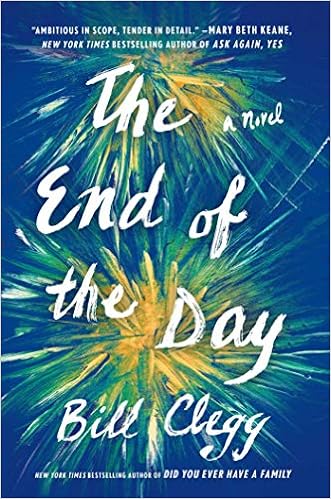4 Stars
Like many people, I was first introduced to Bill Clegg with his wonderful
debut novel Did You Ever Have a Family
(https://schatjesshelves.blogspot.com/2016/07/review-of-did-you-ever-have-family-by.html),
so I was anxious to read his second work of fiction.
Three women are the focus of the novel. There’s Dana who sets out to visit her childhood friend Jackie; after almost 50 years of estrangement, she wants to tell Jackie some truth about the past. Jackie, however, is bitter and resentful and wants nothing to do with Dana. The third woman is Lupita who grew up in the shadow of Dana and Jackie’s friendship because her family once worked for Dana’s parents; now living in Hawaii, Lupita receives a phone call that brings back difficult memories. The revelation of long-held secrets threatens to upend all their lives.
Various chapters repeatedly give the perspective of these three women, but other characters are also given some chapters. There’s Hap, a new father who should be spending time with his newborn daughter but is sitting beside his estranged father’s hospital bed. Alice, Hap’s mother, and Floyd, Jackie’s husband, appear as well. The lives of all six people prove to be intimately connected in surprising ways.
The duration of the novel is one day, but via flashbacks it covers 60 years. Some readers will probably not like the multiple points of view and the movement between different locations in the present and various times in the past, but this technique develops characters and creates suspense because information about a crucial event in the past is revealed very slowly.
Characterization is definitely a strong element. The internal lives of the characters are detailed; we learn their secrets, lies, desires, and resentments. Readers come to understand motivations for behaviour though they may not always agree with a character’s choices. Many of the characters are not likeable. Dana, for instance, is the spoiled rich girl who is accustomed to getting her way and does not hesitate to manipulate others. Jackie is correctly described as suffering from “titanium stubbornness and deep-rooted pride.” Hap is “relentlessly uncurious and absent of imagination” so the “great claw of regret . . . [holds] him without mercy.”
The book explores how decisions can have major impacts on the person making the decision and on others as well. A person can do what s/he believes is right without realizing the long-term repercussions. A youthful escapade may result in unforeseen trauma. Certainly Dana’s manipulations have unintended consequences for herself and for many people.
The novel also examines the concept of truth. One woman believes she knows the truth about an event that occurred 49 years earlier, but there are clear hints that she may not. There are, in fact, several characters who see something and make incorrect assumptions. Everyone has “bits and pieces of the story, but not the truth.” One woman knows what actually happened half a century earlier, but her knowledge of the full impact of her subsequent choices is lacking. There are many misunderstandings because people choose not to tell the truth and because people refuse to listen to the truth. But of course the truth can be dangerous. One person’s death, for example, brings “unexpected relief. Everyone was finally safe from the truth.” Certainly, there are times when unburying the truth will serve little purpose; one woman admits she would like to speak her truth but "to try would upend too much.”
Is it necessary or possible to know the truth? Hap acquires some surprising information but realizes that he can never know the full truth: “So much discovered in so few days, yet he’s never felt so acutely aware of his ignorance. The mural had come down, but only to reveal another less complete, but more complicated one; one that would surely fall, too, and be discredited or trivialized by the one that came after. And on and on. Life appeared no more than a long, bleak unraveling, a stripping away of layers, like the skins of an onion, one by one, peeled back to expose what? The truth?” At the end of the day, people may have to accept not knowing the truth.
I recommend this book to readers who enjoy thought-provoking, character-driven literary fiction written in exquisite prose.
Note: I received a digital galley from the publisher via NetGalley.

No comments:
Post a Comment